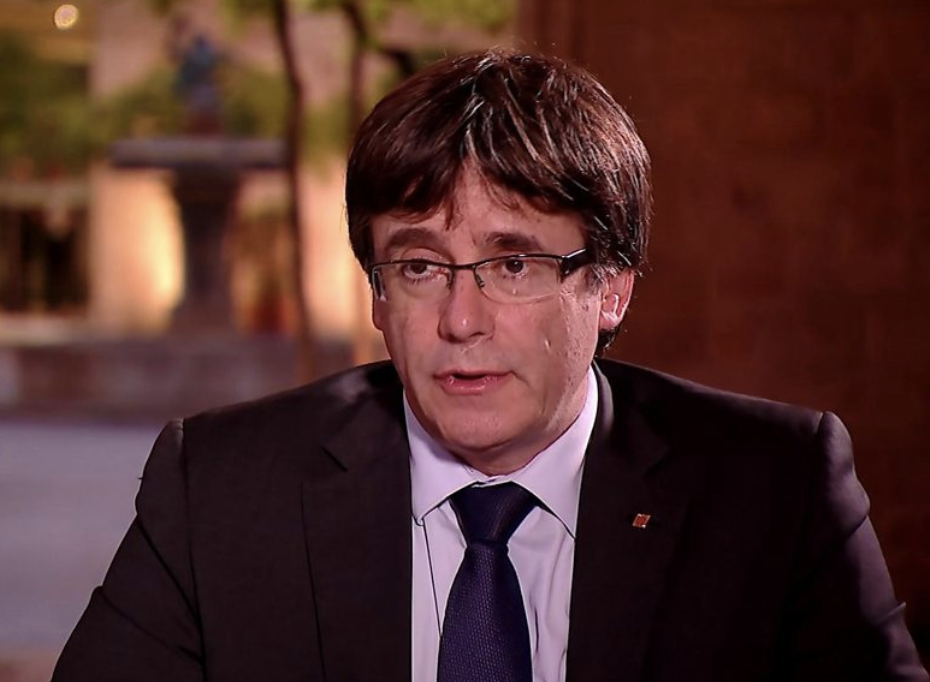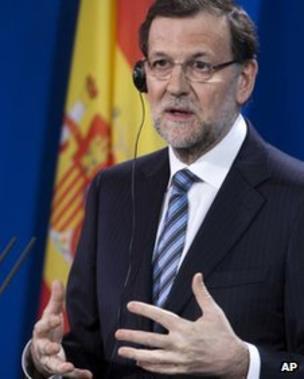
Born in Amer in 1962, he grew up under the dictatorship of Gen Francisco Franco and was taught in Spanish at a church-run boarding school, but spoke Catalan at home like others of his generation.
As a young man, Puigdemont had a passion for his native tongue, going on to study Catalan philology at the local university and polishing colleagues' copy when he first found work in the city's newspapers.
Mr Puigdemont served as mayor of Girona from 2011 until 2016 when he was elected regional president of Catalonia.
His popularity cuts across class, coming as he does from comparatively modest origins, outside the Catalan elite which dominated the local centre-right alliance, Convergence and Union (now known as the Catalan European Democratic Party), for years.
A judge is expected to decide on Monday whether Mr Puigdemont and four former ministers will be extradited to Spain, where they face charges of rebellion and sedition .
Sedition: Conduct or speech inciting people to rebel against the authority of a state or monarch
Mr Puigdemont fled to Belgium after Madrid imposed direct rule on Catalonia following an independence referendum. He has said he will not return to Spain unless he is guaranteed a fair trial.
The former Catalan leader triggered a crisis in Spain by holding an independence referendum in early October in the semi-autonomous region, despite Madrid’s opposition and the Constitutional Court declaring the vote illegal.

Catalonia is an autonomous region in north-east Spain with a distinct history dating back almost 1,000 years.
The wealthy region has about 7.5 million people, with their own language, parliament, flag and anthem. Catalonia also has its own police force and controls some of its public services.
For many years Catalan nationalists have complained that their region sends too much money to poorer parts of Spain.
The Spanish government has fired the Catalan leaders, dissolved parliament and called regional elections for 21 December.
Sacked Catalan President Carles Puigdemont remains defiant and has urged civil servants to disobey Madrid.
Unionists are worried by the uncertainty over Catalonia’s relationship with Europe. If declared independent, Catalonia would need to reapply to become an EU member - which would require agreement from member states, including Spain. Unionists say the labour market is already difficult and are concerned that independence could mean greater unemployment and economic instability.
"Madrid is robbing us" is a popular secessionist slogan, and the received wisdom is that comparatively wealthy Catalonia pays in more than it gets out of the Spanish state. Separatists think Catalonia would be more prosperous as an independent nation. They also see independence as a way to preserve the Catalan culture, history, identity, and language.

Elected a regional deputy for the Popular Party at the age of 26, he climbed through the ranks, serving as a minister in the Aznar governments of 1996-2004.
He was, successively, minister of public administration, education and culture, and the interior, and was chosen by Mr Aznar as his preferred successor at the 2004 election, when the party was tipped to win a third term.
He remains a social conservative, seeking to deny girls under 16 the right to abortion without parental consent and, on gay relationships, saying he prefers the term "civil union" to "marriage".
After helping engineer a political showdown that triggered a constitutional crisis in Spain, deposed Catalan regional president Carles Puigdemont did what many renegade politicians do: He turned up in another country.
On Monday, Puigdemont and several other senior Catalan officials made their way to Brussels, the capital of Belgium and, more importantly, the European Union. Back home, he and a number of his allies face rebellion and sedition charges, which could lead to a sentence of up to 30 years in prison. Though Catalonia's secessionists have won next to no sympathy from foreign governments, they pinned their hopes on a romantic loyalty to the European project and its liberal values. Their cause is only creating headaches for E.U. administrators and statesmen.
Puigdemont's presence in Brussels was already roiling the Belgian political scene, let alone the broader European one, and surfacing the many divisions within the country's fragile ruling coalition. The country's French-speaking liberal prime minister had no time for the Catalan leader, while his Flemish nationalist partners were far more sympathetic.


